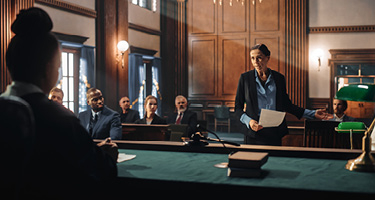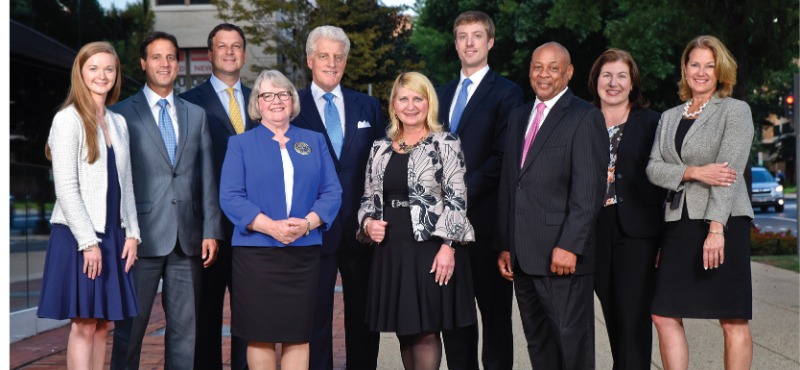I’ve recently defended clients in a number of lawsuits by employees or former employees for unpaid overtime under the Fair Labor Standards Act (“FLSA”). Defending such a claim is often an uphill battle because the FLSA is construed broadly to effectuate its remedial intent, but a careful review of the facts of the case and applicable law may reveal a multitude of potential defenses.
If your client is faced with a lawsuit by an employee for unpaid overtime under the Fair Labor Standards Act (“FLSA”), the following defenses might help your client limit or avoid liability:
1. FLSA doesn’t apply: The FLSA applies to most private sector employees if (a) the employer has two or more employees engaged in interstate commerce and annual gross sales of at least $500,000, or (b) the individual employee engages in interstate commerce. Thus, businesses that are small and highly localized may argue that the FLSA does not apply to them, although it is difficult to prove that virtually any business in 2019 does not engage in interstate commerce (e.g. by placing calls out of state or using the internet).
2. Employee did not work the hours claimed or certain time is not compensable: One possible factual defense is to prove that the employee did not work the hours claimed (based on time and pay records) or that some of the hours claimed are not compensable as “hours worked” under the FLSA (e.g. certain waiting time, on-call time, rest and meal periods, travel time).
3. Employee was properly compensated for hours worked: An employer may also defeat an unpaid overtime claim by proving that the employee was properly compensated pursuant to an alternative method such as (a) a fluctuating workweek plan (where the employer pays the employee a fixed weekly salary covering whatever hours the job demands in a given week, plus overtime at a rate of 50 percent of the employee’s effective regular rate for that week), or (b) a Belo contract (where the employer pays the employee a fixed weekly salary that covers all hours the employee works up to an agreed-upon maximum, plus overtime for hours worked over the maximum).
4. Exemption applies: Perhaps the most common defense to an FLSA overtime claim is that the employee was properly classified as exempt from the overtime requirements of the FLSA pursuant to the executive, administrative, professional, computer, or outside sales exemption. Most of these exemptions have two requirements: (a) the employee must be paid a fixed salary each pay period (at least $455 per week) that is not subject to reduction because of variations in the quality or quantity of work performed; and (b) the employee must regularly and customarily perform certain types of duties. An employee may also qualify for the executive, administrative, or professional exemptions if their annual compensation is at least $100,000 and they perform at least one duty for that exemption.
- The executive exemption has three requirements: (i) management is the employee’s primary duty; (ii) the employee regularly and customarily directs the work of at least two full-time (or equivalent) employees; and (iii) the employee has the authority to hire and fire employees (or significant input regarding such decisions).
- The administrative exemption has two requirements: (i) the employee’s primary duty includes office/non-manual work directly related to the management or general business operations of the employer or the employer’s customer); and (ii) the employee’s primary duty includes the exercise of discretion and independent judgment with respect to matters of significance.
- There are two distinct categories within the professional exemption: learned and creative. A learned professional must have a primary duty that (i) meets three requirements: (A) must perform work requiring knowledge of an advanced type; (B) the advanced knowledge must be in a field of science or; and (C) the advanced knowledge must customarily be acquired by a prolonged course of specialized intellectual instruction; and (ii) involves the consistent exercise of discretion and judgment. A creative professional must have a primary duty that involves the performance of work requiring invention, imagination, originality, or talent in a recognized field of artistic/creative endeavor, as opposed to routine mental, manual, mechanical, or physical work.
- For the computer exemption to apply, an employee must have a primary duty that consists of (i) the application of systems analysis techniques/procedures to determine hardware, software, or system functional specifics; (ii) the design, development, documentation, analysis, creation, testing or modification of computer systems/programs based on and related to user or system design specifications; (iii) the design, documentation, testing, creation or modification of computer programs related to machine operating systems; or (iv) a combination of the above.
- To qualify for the outside sales exemption, (i) the employee’s primary duty must be making sales or obtaining orders/contracts for goods/services; and (ii) the employee must be customarily and regularly engaged away from the employer’s place of business while performing his primary duty.
5. Absolute good-faith defense: An employee may avoid liability for an FLSA violation by proving that it acted in conformity with and in reliance on any written regulation, order, ruling, approval, interpretation, or opinion of the Department of Labor, Wage and Hour Division (even if the ruling was later rescinded).
6. Good faith defense to liquidated damages: An employee may reduce or avoid liquidated damages (double damages) by proving that it acted in good faith, with reasonable grounds to believe it was not violating law (e.g. by relying on a lawyer’s advice).
In conclusion, although the FLSA is a remedial employment statute intended to protect employees, an employer faced with an unjustified FLSA unpaid overtime claim has a number of possible defenses to limit or avoid liability.
***
Maureen E. Carr, Esq. is a shareholder of Bean, Kinney & Korman, P.C. in Arlington, Virginia. She focuses her practice on employment law and commercial litigation and is known for her legal acumen and responsiveness. She can be reached at mcarr@beankinney.com or 703-526-5597.

























